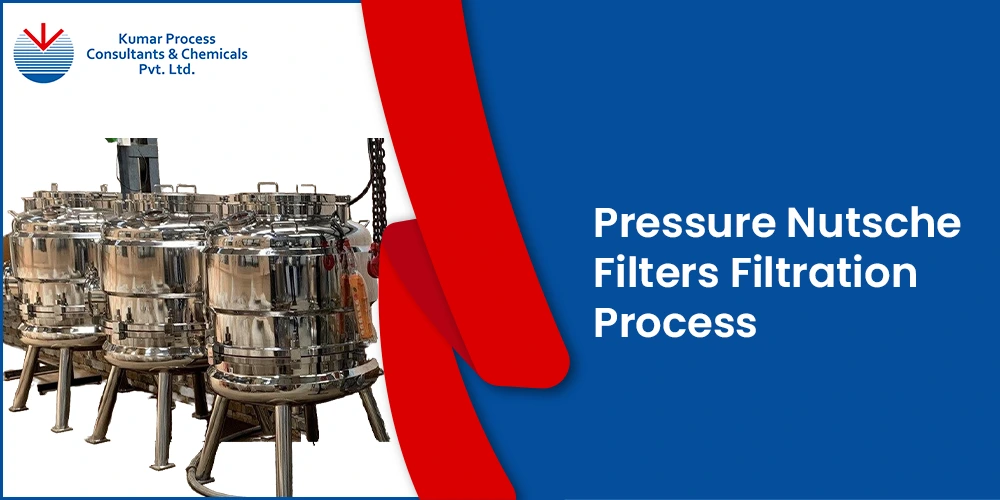


Filtration and drying processes are integral to many industrial applications that facilitate the separation of solids from liquids. Nutsche filtration is a batch filtration technique that uses vacuum and/or pressure in a closed vessel. The pressure/vacuum is used in combination with a nutsche filter plate fitted with the appropriate filter media to force liquid through the media, forming a solid bed often referred to as Pressure Nutsche Filters. This type of filter offers many benefits like product isolation & operator safety that make nutsche filter or dryers mainly used in pharmaceuticals, chemicals, and wastewater treatment.
In this blog, we will discuss in detail about the Pressure Nutsche filters, its compoents & working principle followed in the filtration process.
The Pressure Nutsche Filter is manufactured to work under vacuum or pressure. This filter is mostly used for batch filtration processing in industries like chemicals, dyes, pharmaceuticals, and pesticides, to filter solid from liquids under pressure. This PNF filter is designed with a single unit to perform multiple functions, including filtration, cake washing, reactions, and drying. It is designed to handle the pressure, temperature, and maintain the pH level of filtering liquid. Also these filters are able to filter hazardous substances such as flammable, toxic, or corrosive materials. Pressure Nutsche Filters are available in different sizes, from small units to large machines that process high slurry volumes and form thick filter cakes. They work on the principle of a closed vessel, using pressure or vacuum to separate solids from liquids, ensuring hygienic, contamination-free, and safe filtration. Unlike an Agitated Nutsche Filter Dryer (ANFD), the Pressure Nutsche Filter does not have an agitator. However, larger filters may use hydraulic systems for operation.
The PNF filter is an important part of equipment widely used in batch-oriented industries such as fine chemicals, pharmaceuticals, and pesticides.
The nutsche filter working is a crucial aspect of industrial operations. It involves a series of steps that efficiently separate solids from liquids while securing product quality and process integrity. Here, we'll explain the five fundamental steps that constitute the typical filtration and drying process in a PNF:
The Pressure Nutsche Filter (PNF) is essential in industrial processes, ensuring efficient solid-liquid separation with advanced filtration and drying capabilities. At Kumar Process Consultants, we manufacture and supply high-quality PNF filters, designed for efficient filtration, drying, and discharge. With many years of experience in technical expertise ensures reliable, cost-effective solutions that enhance productivity and quality. We provide customized solutions to meet the specific needs of your business.
A Pressure Nutsche Filter (PNF) works by applying pressure to a slurry, forcing the liquid through a filter medium while retaining solid particles. The process involves filling, filtration, washing, drying, and discharge, ensuring efficient solid-liquid separation in industries like pharmaceuticals, chemicals, and dyes.
PNFs are widely used in pharmaceuticals, chemicals, agrochemicals, dyes, and food processing for filtration, cake washing, and drying. They help in handling toxic, corrosive, and temperature-sensitive materials, ensuring product purity and compliance with industry standards.
A Nutsche Filter operates under vacuum or atmospheric pressure, while a Pressure Nutsche Filter uses compressed gas or air to enhance filtration efficiency. PNFs offer faster processing, better cake washing, and improved drying compared to standard Nutsche Filters.